- Home
- Seanan McGuire
Sparrow Hill Road Page 13
Sparrow Hill Road Read online
Page 13
“Your radio’s broken again.”
Gary glanced toward Rose. The sun was glinting off her lemon-bleached hair like a halo, making her look even more like an angel than she usually did. (That was an image that would haunt him in the days and nights ahead, making sleep an impossible fantasy. But that was the future, and the future was another country.) “Just give it a thump. It’ll start working again.”
“I’m not sure I can handle all those big technical words,” said Rose, and smacked the radio with the heel of her hand. Rock and roll blared into the car, turned up just a little too loud for the safety of their eardrums. She twisted the volume quickly down, and smiled. “Much better.”
“I swear my car likes you better than it likes me.”
“She just likes that I know how to fix her better than you do, that’s all.” Rose ran her fingers along the dashboard, smiling almost maternally at the machine. “You should take better care of her.”
“What’s the fun of something that works every time you try to turn it on?”
“I guess that could be a kind of fun,” allowed Rose, who had been on the receiving end of too many broken things to really share that point of view. Some of them didn’t start up again when you hit them. Some of them required begging and tears and giving six months of saved-up babysitting money to your brother to pay off the electric bill. “So, tomorrow . . .”
“Tomorrow, huh? I was thinking I’d go see a movie. Maybe drive up to Ann Arbor for the afternoon.” Rose made a face at him. Gary laughed. “Or I could pick you up at six for dinner, and we can go from there to the prom. If that’s okay with you?”
“That’ll have me on cloud nine for sure,” said Rose solemnly. She was smart enough to know what it was really costing Gary to take her to the prom, and still innocent enough to hope that his intentions were honorable ones. They might not be—no girl with two older brothers and no father to look out for her could be quite that blind—but as long as she could hope . . .
If this ended with the school year, if he said, “It’s been fun” and drove off to college in some big city like Detroit or Columbus, well, it would still have been worth it, every minute of it. Because he’d been good to her, and she liked it when he laughed, and there wasn’t enough in Buckley that made her happy. If everything he’d been to her was a lie, well. She’d run that road when she came to it.
Gary pulled in the lot behind the auto-shop classes, scattering greasers and smokers like quail before he killed the engine, and gave her a little grin, that little grin she always thought of as existing just for her. “See you after school?”
Rose grinned back. “It’s a date.”
The Last Dance Diner, 2013.
“But when are we going to get to the ghost story part?” asks a cheerleader, sounding plaintive and bored at the same time. I blink at her in confusion. The Last Dance seems almost like a mirage somehow, blurry and unreal in the flickering candlelight. This can’t be the real world, can it? This cold, wet, twilight world, where the sun never rises and the dead live on forever? This can’t be where I’m spending eternity—not after the hot, clean heat of a Michigan summer, not after Gary’s smile . . .
“Rose?” says Emma.
I blink again, clearing the candlelight from my eyes, and nod in her direction. “I’ve got it,” I say, and take a breath. “The ghost story part is coming. Now listen. The school day inched by like a thousand days before it; like a thousand more would inch after it. One minute at a time, counting down to the freedom of the final bell . . .”
Buckley Township, Michigan, 1952.
The final bell rang like Gabriel’s trumpet, and students poured out of classrooms like angels answering the call to war. Rose stayed seated at her desk, counting slowly backward from twenty. She’d learned the hard way that it was best for her not to hurry. Let the popular girls—the ones who couldn’t understand how someone like her could ever be competition for people like them—make their way out of the halls and off campus. Once that was done, it would be safe to move.
“Rose?”
“Yes, Mrs. Jackson?” Rose raised her head from the book she’d been pretending to read, flashing an appropriately respectful smile at the anxious looking teacher in front of her. Irene Jackson had only been teaching in Buckley for a year; hadn’t learned the rules yet, the signals that meant it was time to look the other way, the patterns that meant something was too big for a single person to stop. She was young. She’d learn. If she had time.
Irene Jackson was a good woman, and she’d gone into teaching because of girls like Rose—girls like the girl she’d been, once upon a time. The ones who didn’t think they had any options, because their families couldn’t buy those options for them. “Are you all right? You looked . . .”
“I’m fine, Mrs. Jackson.” Rose stood hurriedly, grabbing her books from the rack beneath her desk and clutching them against her chest. “I just have so much to get done before prom that I guess I was letting my thoughts run away with me.”
“Gary Daniels is taking you to his Senior Prom, isn’t he?”
“Yes, ma’am.”
“He seems like a very nice young man.”
Rose’s smile was brilliant enough to shame the sun, if only for a few seconds before it faded back into her normal low-caste wariness. “He is, Mrs. Jackson. A very nice young man. Thank you, ma’am.” And then she was gone, heading for the door at the brisk walk-half-skip that all the female students used when they were trying to escape their teachers without being rude about it.
Irene Jackson—who would never forget the way Rose had smiled; who would later write her memorial page for the school yearbook, and would weep without shame over every word—watched her go, a frown pulling down the corners of her mouth. That night, she sat on the edge of the bed with her husband brushing out her hair, sighed, and said, “It was like she was weighing the rest of her life, right there in my classroom, and she was finding every bit of it wanting. How am I supposed to help these kids? They don’t want my help. They don’t want anything but to be left alone.”
David Jackson was a smart man, and knew that sometimes, his wife worried about things she had no business worrying about, like teenage girls from the bad side of town. He pressed a kiss to the top of her head, and said, “She’ll be fine. Girls like that can surprise you sometimes, if you give them the chance. Just be there if she needs you.”
“I’m there for all the kids,” said Irene, with the conviction of a true believer. “All they have to do is ask.”
“There, you see?” He put the brush aside, reaching for her. “Now come here. It’s time to forget about other people’s children for a while.”
The Last Dance Diner, 2013.
I’m filling space, relating events that I wasn’t there to witness . . . but I know that they happened, because the people involved told me about them. They told me when I went back to Buckley to offer them a guide into the dark places, playing psychopomp for the people who’d known me and cared for me when I was alive—the only people who were mine to shepherd, even though they didn’t die on the road. The ones who mattered in life can matter in death, if you want them to, and I’ve guided everyone I cared about who’s died since I did.
Everyone who’d go with me, anyway. I ran for Michigan when I felt my mother dying, but she was long gone by the time I got there, and the shades of the streets told me she’d known I was on the way, but chose not to wait for me. I guess some things don’t change, not even among the dead.
Maybe especially not among the dead.
I take another breath, smiling gratefully as Emma slides another dish of ice cream in front of me, and continue. “The next night, with her mother off to work the diner’s night shift and her brothers off doing whatever it was they spent their evenings doing, Rose walked to her closet . . .”
Buckley Township, Michigan, 1952.
Rose walked to her closet the way she imagined a bride would walk on the evening of her wedding. She’d worked all yea
r to save her pennies for a prom dress, putting up with endless hours of babysitting and doing more odd jobs than she cared to count. Every cent she got went toward the dress. She’d been hiding her money under the bottom drawer of her dresser, where her mother wouldn’t think to look. Her brothers wouldn’t steal from her, although it was best not to tempt them; the Marshall boys were still looking for their own roads out of Buckley. Still, they knew what the money was for, and they wouldn’t deny her the chance to get away. A prom night might not change the world . . . but then again, it might. If she was lucky, it just might.
The dress she’d purchased from the department store downtown was green silk, almost daring in the way it hugged her hips and waist, almost demure in the way it circled her chest and shoulders. The perfect dress. The color was right for her, whether her hair was lemon-bleached or its darker natural brown, and she’d even been able to find matching shoes at the secondhand shop downtown. That was the final straw, the thing that decided her, even if it meant she had to work another month of Saturday nights while her perfect dress sat on layaway, waiting for her to come and claim it. Even the store manager had smiled when she came to pick it up, paying her last five dollars with hands that were very nearly shaking. It was the perfect dress for prom. It was the perfect dress for everything.
It was the perfect dress to die in.
But thoughts like that were a million miles from Rose’s mind as she stepped out of her coarse cotton skirt and slid the silk up around her waist, feeling the fabric cupping her the way Gary sometimes did, when he was feeling daring and she was feeling wild. She pulled it up a little bit, letting the heavy fabric whisper against her legs, tiny silk kisses on her skin. But draw it out as she might, she couldn’t make the process last forever. All too soon, she was looking at herself in the mirror, at the green silk bodice, at the matching ribbons tied oh-so-carefully through the tamed and tempered straw of her hair.
“If he asks me to go to the top of Dead Man’s Hill tonight, I will,” she whispered, the words wicked on her tongue, and watched the wanton blush spreading up her cheeks. She was going to get out of Buckley, she was, and one way or another, this was going to be the night that started her escape.
One way or another.
The hours ticked by as slowly as shadows creeping across the street at sunset, and Gary didn’t come. Rose sat on the porch, keeping her back carefully lifted away from the wide slats of the porch swing, and watched the road with eyes that had gone from anticipatory into worried, and were now making the transition into angry. He hadn’t come because he wasn’t coming. Someone—his mother, maybe, or those pretty girls in school who didn’t think a boy like him should go anywhere near a girl like her—had finally talked some of their brand of sense into him, and he wasn’t coming.
She’d been a fool to think a night like this was ever intended for a girl like her. Rose stood, blinking back tears as she turned to storm back into the house, away from the summer air and the hope of something more.
Then she paused, hand stretched toward the doorknob. Paused, and thought.
The umbramancers say that every choice we make can change the future, and that every future exists, somewhere. If anyone would know, it would be them, with their wild, mad eyes that see past the highway’s end, off into forever.
If what they say is true—if every choice we make creates a future—then this story has a happy ending. In a thousand, thousand futures, Rose Marshall went back into the house, took off the green silk gown, chose another path. Maybe she sold the dress back to the department store and used the money she’d worked so hard for to leave Buckley forever. Maybe she confronted Gary at school on Monday morning, found peace, found closure. Maybe she just decided to wait a little bit longer before she turned off all the lights, and was still awake when her prom date arrived, greasy-handed from changing his tire, with a half-dead corsage clutched in one hand. Maybe. But those are other stories, about other Roses, and that isn’t how this story chose to go.
The frown bloomed on Rose’s face like the flower she was named for, starting small, but opening swiftly. By the time she wrenched the door open and stormed into her brothers’ room, it was in full display, petaled in anger, disappointment, and shame. Arthur and Morty were gone for the night, off on some mysterious errand, and they’d taken Arthur’s truck, leaving Morty’s clapped-out old car behind. He always left his keys in the dish beside his bed when he wasn’t going to need them. Rose snatched them up and turned to go, not looking back, not pausing to change her clothes.
If any of the neighbors had chosen that moment to look out the window, they would have seen a small, pale-haired figure dressed in green silk go stalking across the yard to the car parked beside the curb. They might have said “There goes that Marshall girl,” might even have commented on what a strange thing that was to wear on an evening drive. But no one saw her go. No one said a word.
Rose Marshall shoved the key into the ignition, turned it, and was gone.
The Last Dance Diner, 2013.
I pause for a moment, struggling to find the words that come next; struggling to find the next breath. I don’t have to breathe, not really, but here and now and wearing the coat that Emma gave me when the cheerleaders arrived—wouldn’t do to have them realize they could see right through me when the lightning flashed—it helps me think. I don’t want to tell them the parts that come next. I don’t want to remember them. I want to lie, say things worked out, say that somehow, this was never a ghost story at all. It was just another high school romance, long ago and far away, once upon a time in Michigan.
I take that next breath, sigh, and say, “The fastest way to Gary’s house was by way of a narrow, winding road that ran the length of the closest thing in town to a mountain. They called it Sparrow Hill Road . . .”
Buckley Township, Michigan, 1952.
Rose slowed as she took the turnoff onto Sparrow Hill Road, a sudden chill making the skin on her arms lump up into hard knots of gooseflesh. Something was wrong. Something was very wrong. Every instinct she had was telling her to turn around, to take the long way, or to just go home; this wasn’t worth it. People had died on Sparrow Hill Road. A girl from her high school had been killed there just last year. It wasn’t worth it.
Rose Marshall was nothing if not stubborn. Tightening her hands on the wheel, she hit the gas and drove forward into the shadows lurking underneath the trees that covered the hill. It only took a few moments for the light to disappear completely.
No one in Buckley ever saw Rose alive again.
Sparrow Hill Road was a little over three miles long from end to end, following a winding route around the outside of the hill it was named for. Rose had traveled nearly a mile and a half when headlights flashed on behind her, sudden and almost blinding as they reflected off her rearview mirror. “Ah!” she exclaimed, throwing up an arm to block the glare. “Jerk.”
Adjusting the mirror didn’t help; it was almost like the car behind her was aiming to kill her night vision. Rose muttered something unladylike under her breath and sped up. She’d been driving Sparrow Hill Road since long before she was legally allowed behind the wheel of a car. If she had to drive it halfway-blind, then so be it. It wasn’t like she had another choice. The road was too narrow where they were, and she couldn’t turn around, or pull off to the side to let the bastard pass.
Another half-mile slunk by, sliding away into the night. The headlights faded from her rearview, and Rose dropped her hand from her eyes, putting it back on the wheel. She had time, barely, to grip the wheel before the car that had been driving behind her lunged forward and slammed into her rear bumper.
The impact was hard and unexpected, throwing Rose forward. She cried out as she caught herself against the wheel, more in surprise than pain, and was in the process of straightening when the car was hit again, harder this time, knocking her almost onto the dash.
“What are you trying to do, kill me?” she shouted, even though she knew full well that there w
as no way the other driver could hear her. Then she paled. There were always stories about girls foolish enough to drive alone on spooky deserted roads in the middle of nowhere—and then there was that girl, what was her name, Mary or Martha or something . . .
Rose slammed her foot down on the gas hard enough to hurt, sending Morty’s car leaping forward at a speed it hadn’t seen since it was new. “Come on, come on, please,” she whispered, shifting as she urged the car to go even faster, to break whatever mechanical laws were holding it back. It said something about the car’s love for her that it tried, oh, how it tried to do as she was asking. Just a little farther. If she could make it just a little farther, she could get off the hill, and then—
She didn’t dare slow for the curve in the road. She twisted the wheel sharply left, trying to swing the car around. She would have made it—her reflexes were good, as the reflexes of the young and afraid so very often are—if the strange car hadn’t slammed into her bumper one final time just as she began her turn, sending her, and her brother’s car, plummeting down into the darkness on the side of Sparrow Hill Road.
There was time to scream. There was time to think Oh God, oh God, I’m going to die, this is it, I’m going to die, oh God . . .
And then there was nothing.
The Last Dance Diner, 2013.
Silence reigns in the Last Dance Diner. Silence, and the sound of the rain. The cheerleaders stare at me in open-mouthed silence, waiting for the story to continue. I take a breath.

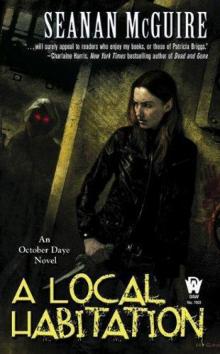 A Local Habitation
A Local Habitation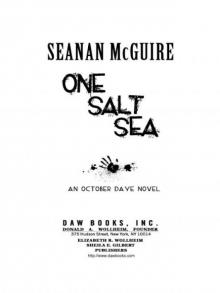 One Salt Sea
One Salt Sea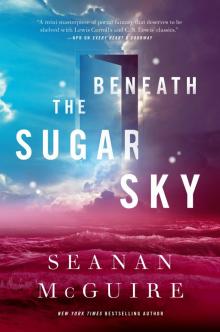 Beneath the Sugar Sky
Beneath the Sugar Sky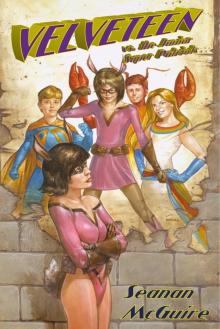 Velveteen vs. The Junior Super Patriots
Velveteen vs. The Junior Super Patriots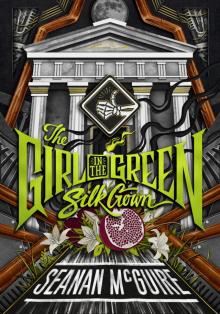 The Girl in the Green Silk Gown
The Girl in the Green Silk Gown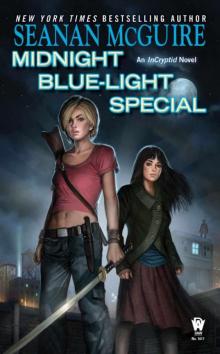 Midnight Blue-Light Special
Midnight Blue-Light Special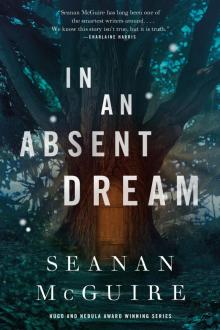 In an Absent Dream
In an Absent Dream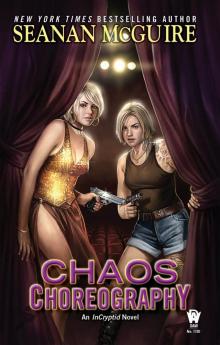 Chaos Choreography
Chaos Choreography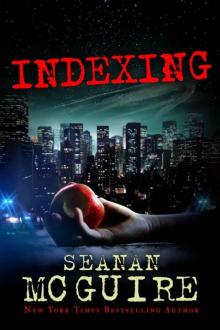 Indexing
Indexing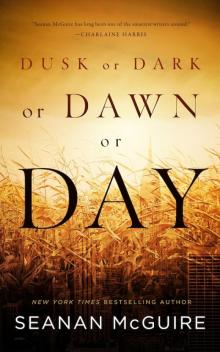 Dusk or Dark or Dawn or Day
Dusk or Dark or Dawn or Day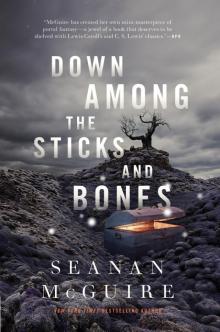 Down Among the Sticks and Bones
Down Among the Sticks and Bones The Razor's Edge
The Razor's Edge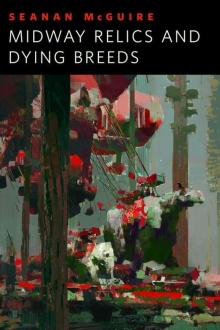 Midway Relics and Dying Breeds
Midway Relics and Dying Breeds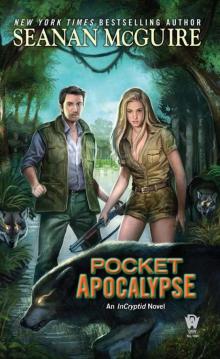 Pocket Apocalypse
Pocket Apocalypse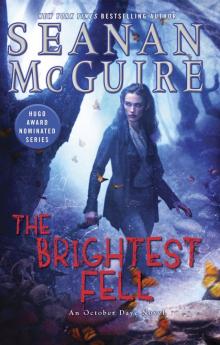 The Brightest Fell
The Brightest Fell Discount Armageddon
Discount Armageddon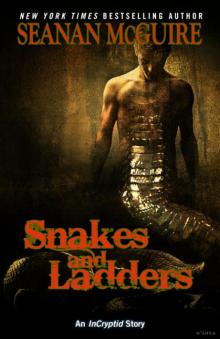 Snakes and Ladders
Snakes and Ladders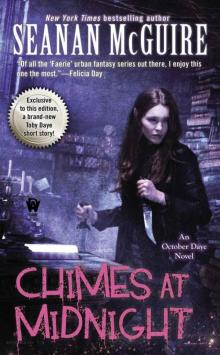 Chimes at Midnight
Chimes at Midnight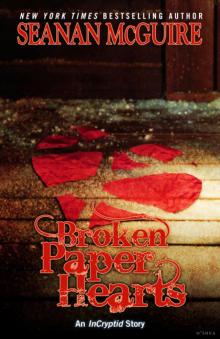 Broken Paper Hearts
Broken Paper Hearts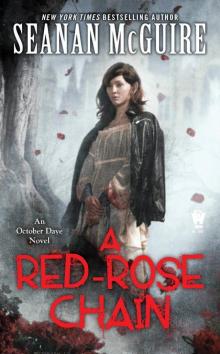 A Red-Rose Chain
A Red-Rose Chain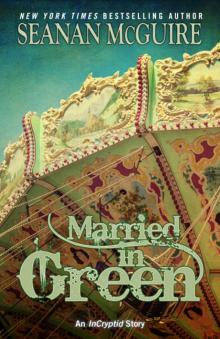 Married in Green
Married in Green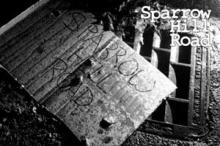 Sparrow Hill Road 2010 By Seanan
Sparrow Hill Road 2010 By Seanan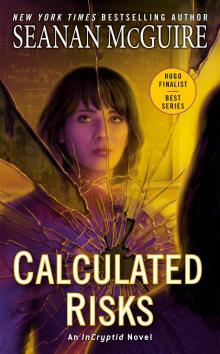 Calculated Risks
Calculated Risks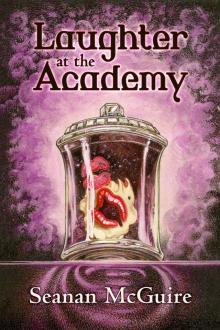 Laughter at the Academy
Laughter at the Academy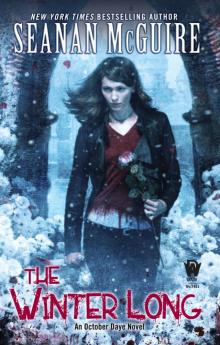 The Winter Long
The Winter Long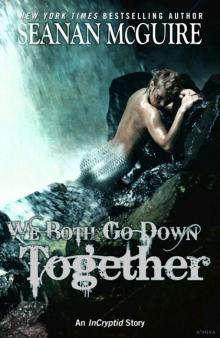 We Both Go Down Together
We Both Go Down Together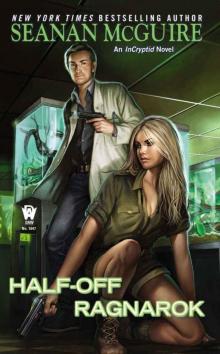 Half-Off Ragnarok
Half-Off Ragnarok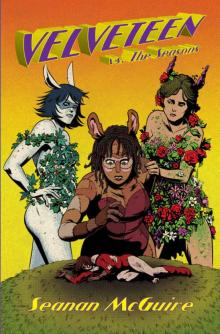 Velveteen vs. The Seasons
Velveteen vs. The Seasons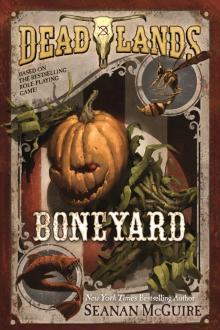 Boneyard
Boneyard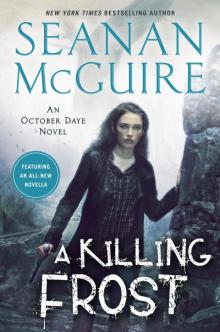 A Killing Frost
A Killing Frost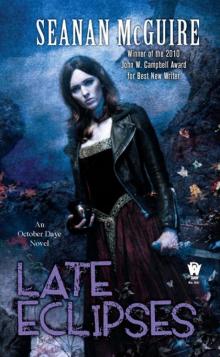 Late Eclipses
Late Eclipses Submerged
Submerged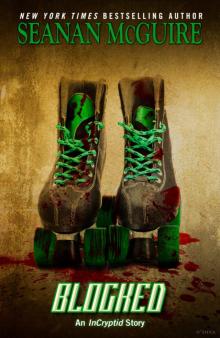 Blocked
Blocked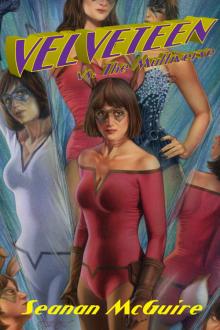 Velveteen vs. The Multiverse
Velveteen vs. The Multiverse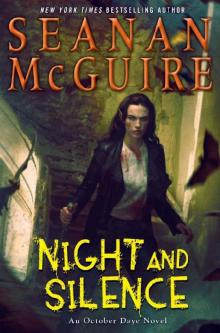 Night and Silence
Night and Silence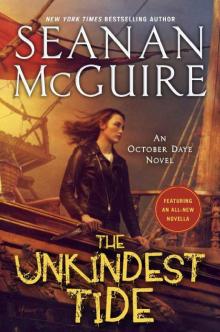 The Unkindest Tide (October Daye)
The Unkindest Tide (October Daye)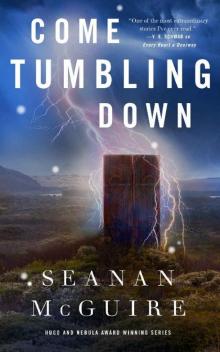 Come Tumbling Down (Wayward Children)
Come Tumbling Down (Wayward Children)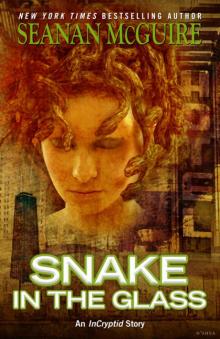 Snake in the Glass
Snake in the Glass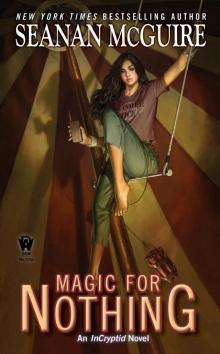 Magic for Nothing
Magic for Nothing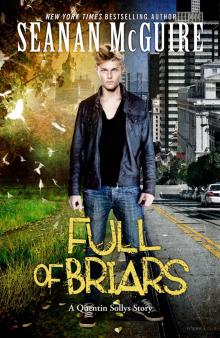 Full of Briars
Full of Briars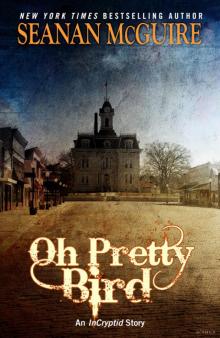 Oh Pretty Bird
Oh Pretty Bird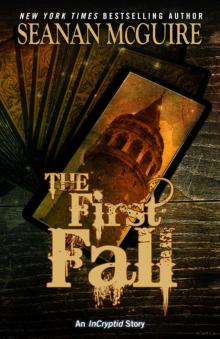 The First Fall
The First Fall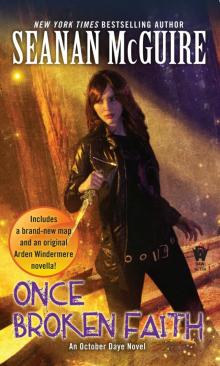 Once Broken Faith
Once Broken Faith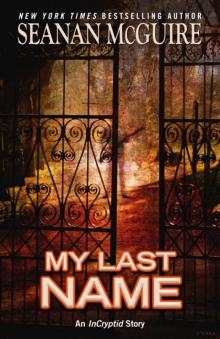 My Last Name
My Last Name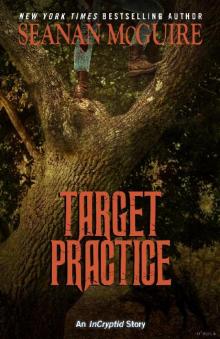 Target Practice
Target Practice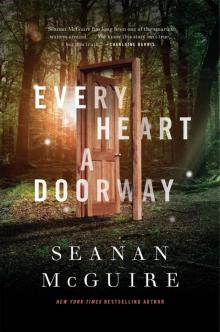 Wayward Children 01 - Every Heart a Doorway
Wayward Children 01 - Every Heart a Doorway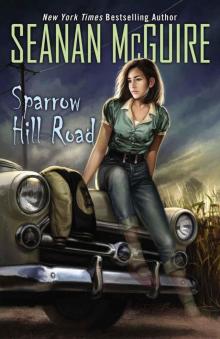 Sparrow Hill Road
Sparrow Hill Road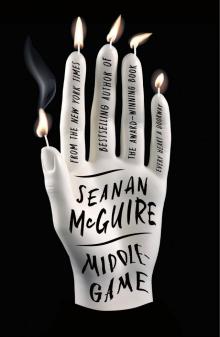 Middlegame
Middlegame Juice Like Wounds
Juice Like Wounds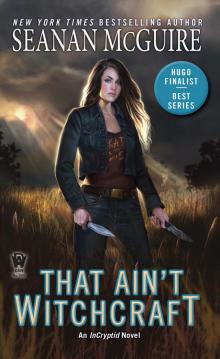 That Ain't Witchcraft
That Ain't Witchcraft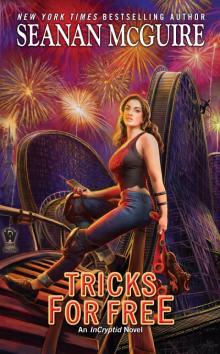 Tricks for Free
Tricks for Free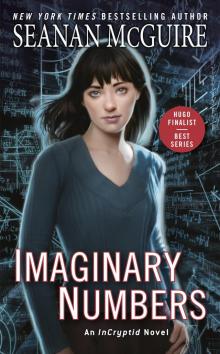 Imaginary Numbers
Imaginary Numbers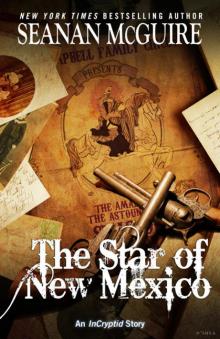 The Star of New Mexico
The Star of New Mexico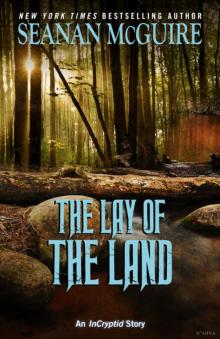 Lay of the Land
Lay of the Land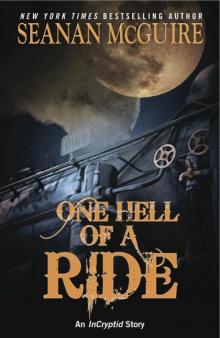 One Hell of a Ride
One Hell of a Ride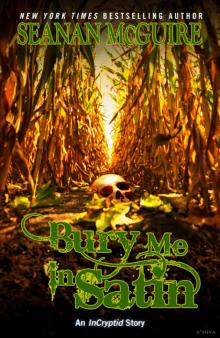 Bury Me in Satin
Bury Me in Satin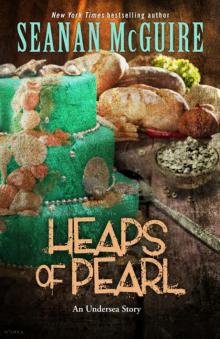 Heaps of Pearl
Heaps of Pearl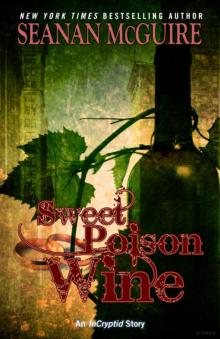 Sweet Poison Wine
Sweet Poison Wine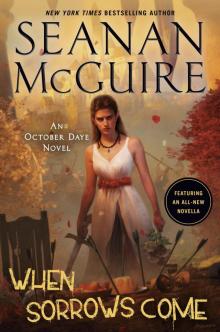 When Sorrows Come
When Sorrows Come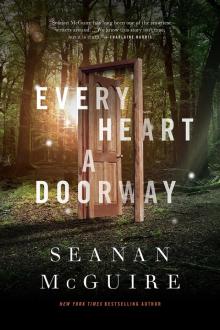 Every Heart a Doorway
Every Heart a Doorway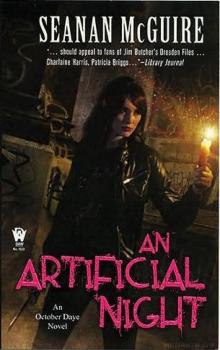 An Artificial Night - BK 3
An Artificial Night - BK 3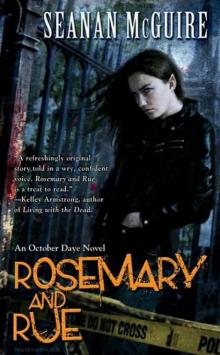 Rosemary and Rue
Rosemary and Rue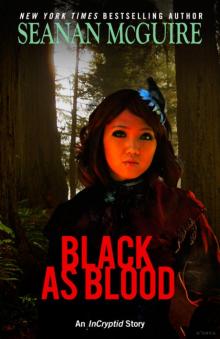 Black as Blood
Black as Blood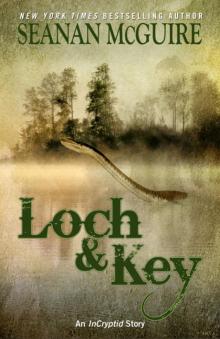 Loch and Key
Loch and Key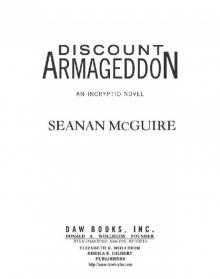 Discount Armageddon: An Incryptid Novel
Discount Armageddon: An Incryptid Novel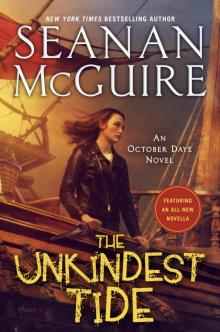 The Unkindest Tide
The Unkindest Tide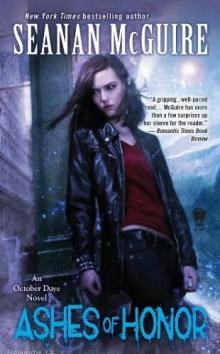 Ashes of Honor od-6
Ashes of Honor od-6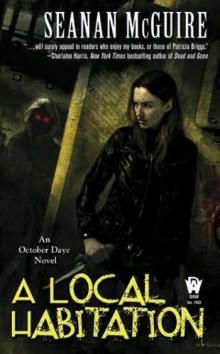 A Local Habitation od-2
A Local Habitation od-2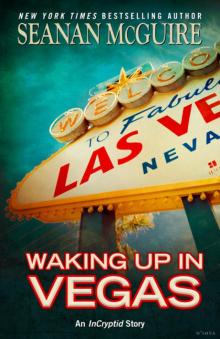 Waking Up in Vegas
Waking Up in Vegas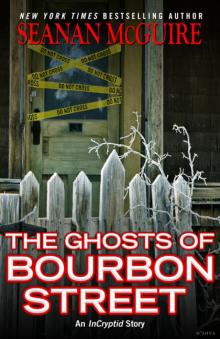 The Ghosts of Bourbon Street
The Ghosts of Bourbon Street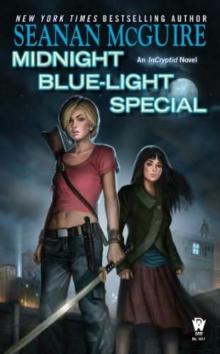 Midnight Blue-Light Special i-2
Midnight Blue-Light Special i-2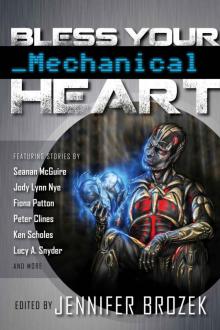 Bless Your Mechanical Heart
Bless Your Mechanical Heart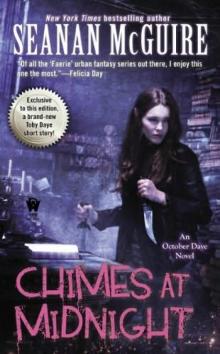 Chimes at Midnight od-7
Chimes at Midnight od-7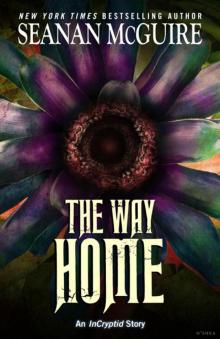 The Way Home
The Way Home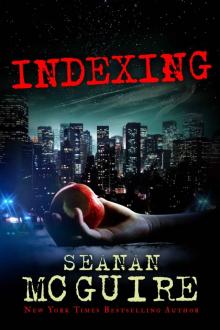 Indexing (Kindle Serial)
Indexing (Kindle Serial)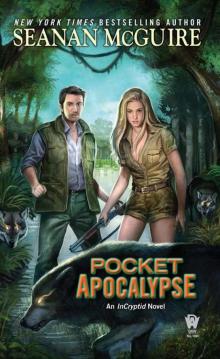 Pocket Apocalypse: InCryptid, Book Four
Pocket Apocalypse: InCryptid, Book Four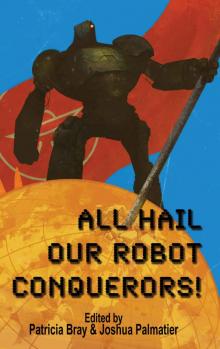 All Hail Our Robot Conquerors!
All Hail Our Robot Conquerors!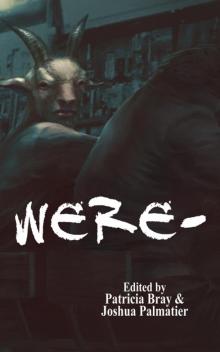 Were-
Were-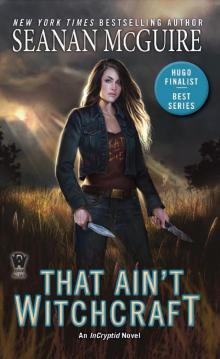 That Ain't Witchcraft (InCryptid #8)
That Ain't Witchcraft (InCryptid #8)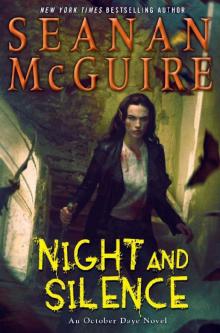 Night and Silence (October Daye)
Night and Silence (October Daye)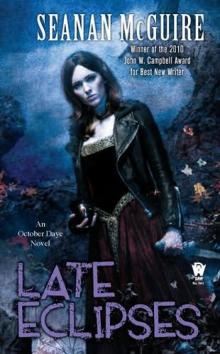 Late Eclipses od-4
Late Eclipses od-4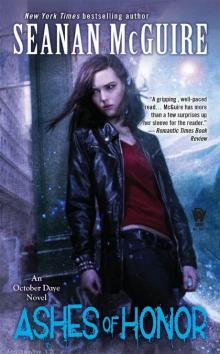 Ashes of Honor: An October Daye Novel
Ashes of Honor: An October Daye Novel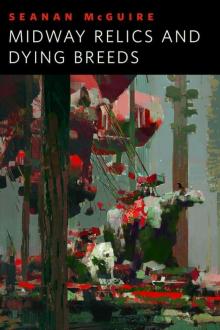 Midway Relics and Dying Breeds: A Tor.Com Original
Midway Relics and Dying Breeds: A Tor.Com Original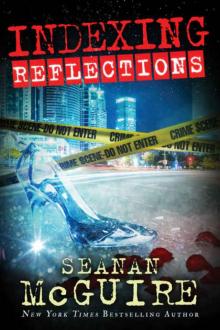 Indexing: Reflections (Kindle Serials) (Indexing Series Book 2)
Indexing: Reflections (Kindle Serials) (Indexing Series Book 2)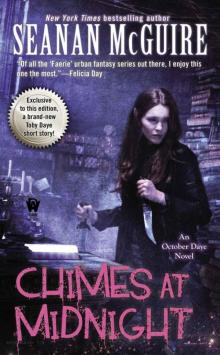 Chimes at Midnight: An October Daye Novel
Chimes at Midnight: An October Daye Novel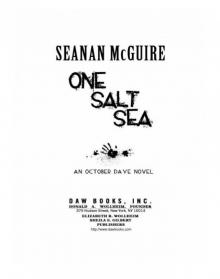 One Salt Sea: An October Daye Novel
One Salt Sea: An October Daye Novel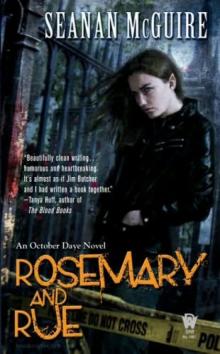 Rosemary and Rue od-1
Rosemary and Rue od-1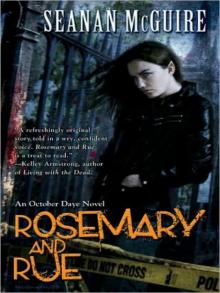 Rosemary and Rue: An October Daye Novel
Rosemary and Rue: An October Daye Novel Lightspeed Magazine Issue 49
Lightspeed Magazine Issue 49 Alien Artifacts
Alien Artifacts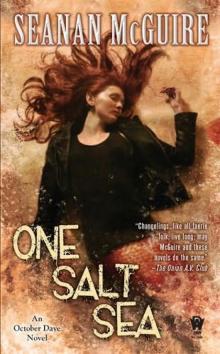 One Salt Sea od-5
One Salt Sea od-5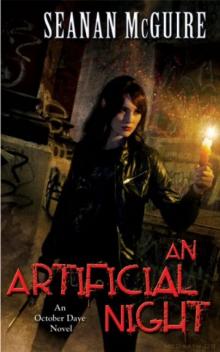 An Artificial Night od-3
An Artificial Night od-3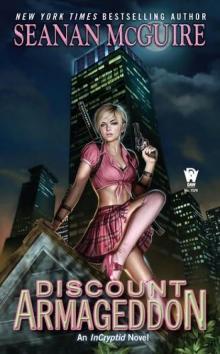 Discount Armageddon i-1
Discount Armageddon i-1